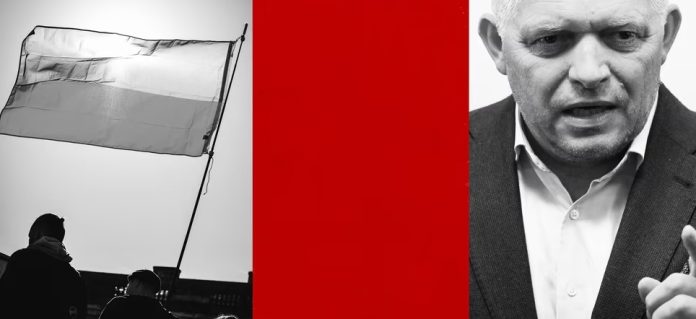Slovakia was one of the first countries to provide military aid to Ukraine in February 2022. It provides diplomatic support to its neighbour in the UN, EU and NATO.
However, on 30 September, Robert Fico and his Smer-SSD party won the parliamentary elections with 23% of the vote. In his election programme, Fico promised that if his party “enters the government, we will not send a single bullet to Ukraine”. If SMER-SSD is able to build a majority coalition, Fico will become Slovakia’s prime minister for the third time.
On Sunday, Fico said that his position on Ukraine “has not changed.” He then clarified that “people in Slovakia have more serious problems than Ukraine”. He also added that he is “prepared to help Ukraine in a humanitarian way … we are prepared to help with the reconstruction of the state. But you know our opinion on arming Ukraine.”
Fico said that he would do everything in his power to start peace talks to end the war. He opposes Ukraine joining NATO and sanctions against Russia. Fico also put the blame for the outbreak of the war equally on the political West and Ukraine.
At the same time, Poland is probably the strongest supporter of Ukraine. It has transferred about a third of its weapons (worth about $4 billion) to Ukraine and is a major transit point for other NATO countries’ weapons to Ukraine. It strongly supports Ukraine’s bids for more modern weapons and NATO membership.
However, the dispute over Ukrainian grain exports became a stumbling block between the partners. This was caused by Poland’s irritation over what it sees as Ukraine’s unwillingness to confront a nationalist past hostile to Poland.
In July, the Polish parliament passed a resolution providing for the “recognition of guilt” of Ukraine for the Volhynian Massacre – anti-Polish ethnic cleansing carried out by Ukrainian nationalists in German-occupied Poland in the summer of 1943. According to the resolution:
“Polish-Ukrainian reconciliation, which representatives of both nations have been building for years, should also include an admission of guilt and perpetuation of the memory of the victims of World War II.”
Ukraine has accused Poland of putting it in a difficult economic situation by imposing restrictions on imports of Ukrainian grain to protect Polish farmers and markets. Poland responded by saying that Ukraine should be “more grateful” and suggested that Kyiv “should start appreciating the role Poland has played for Ukraine in recent months and years”.
Ukraine then responded by calling in the Polish ambassador to Ukraine, a diplomatic maneuver Poland’s Prime Minister Mateusz Morawiecki said “should not have happened,” calling it “a mistake . . . given the huge support Poland has provided to Ukraine.”
The situation has escalated even further when, in his speech to the UN General Assembly, Ukrainian President Volodymyr Zelensky accused Poland of betraying Ukraine and abetting Russia, complaining that “some in Europe play out solidarity in a political theatre – making thriller from the grain. They may seem to play their own role but in fact, they are helping set the stage to a Moscow actor.”
That accusation, and the fact that Ukraine has taken the World Trade Organisation to court against Poland, Hungary and Slovakia over a ban on Ukrainian grain imports, prompted Morawiecki to say that Poland “will no longer supply arms to Ukraine because we are now arming Poland with more modern weapons”, although it will honour agreements with Ukraine and allow other countries to supply arms to Ukraine via Poland.
The last of the three countries against which Ukraine has filed a WTO complaint, Hungary, also recently joined Poland and Slovakia in widening the crack in NATO.
Hungarian Prime Minister Viktor Orban has taken offence at Ukraine over a law that restricts the use of national minority languages in the country. Hungary believes that this law violates the rights of ethnic Hungarians in Ukraine to use the Hungarian language, especially in education. He claimed:
They want to transform [Hungarian schools] into Ukrainian schools and if that does not work they want to close them. We do not support Ukraine in any issue in the international scene until it restores the laws that guarantee the rights of Hungarians.
Fico coming to power could put Slovakia in a triumvirate of countries with Poland and Hungary, which all border Ukraine, all are members of NATO and all, to varying degrees, it is not yet clear, are widening the crack in NATO over its stance on the war in Ukraine.
